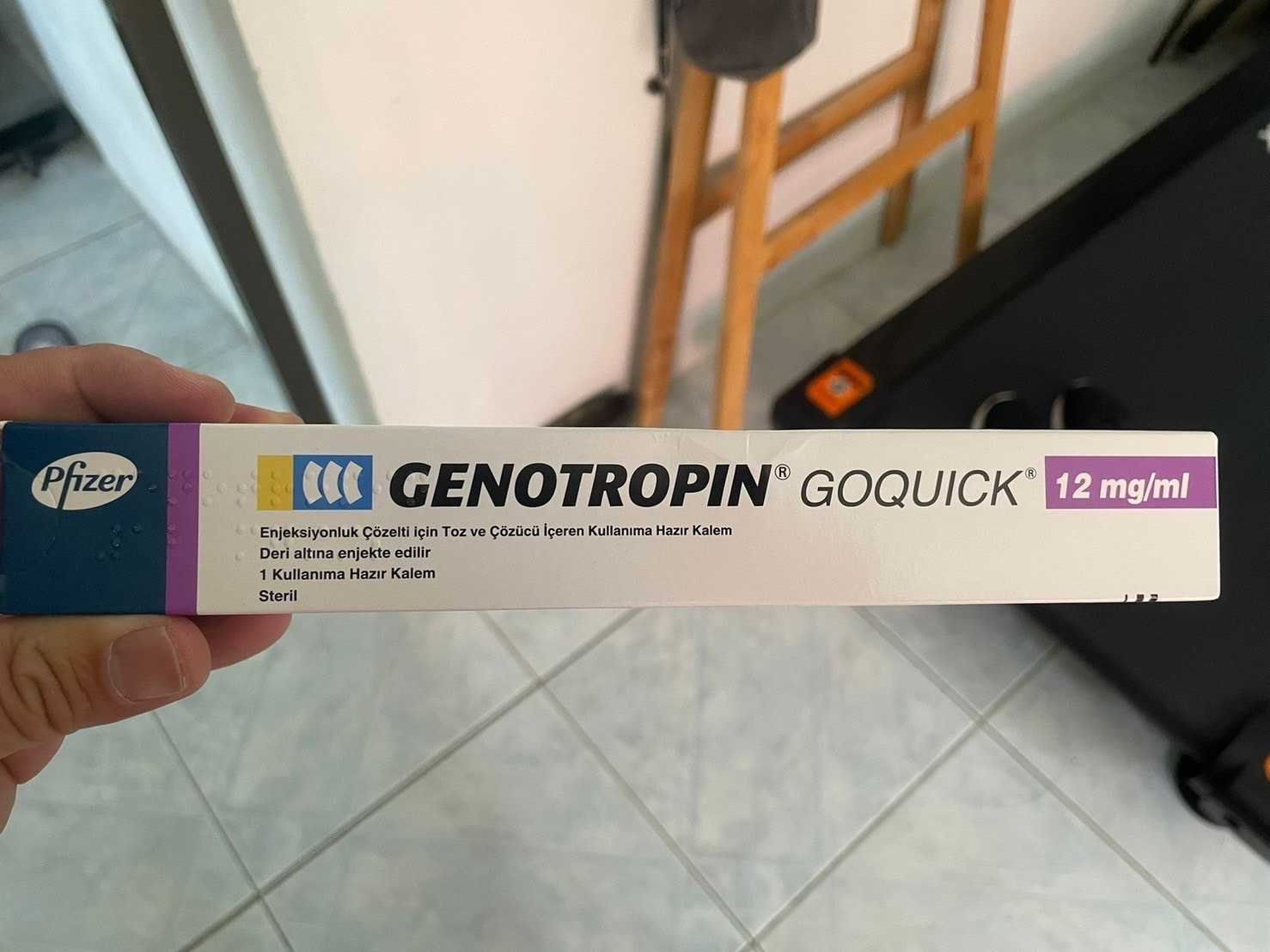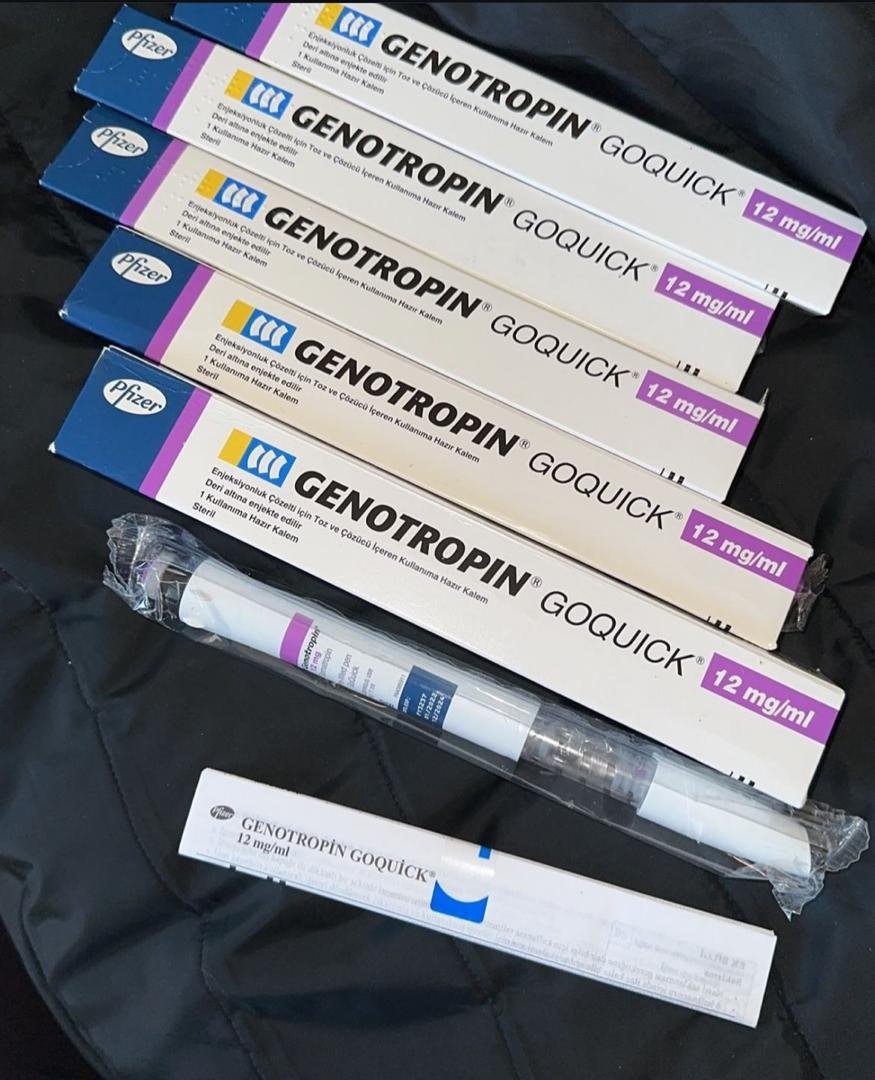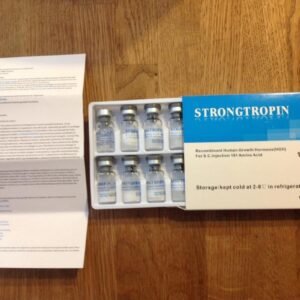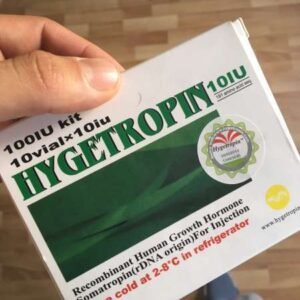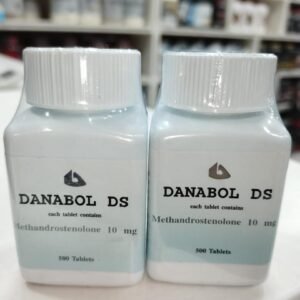Understanding Genotropin: A Guide to Human Growth Hormone Therapy.
What is Genotropin?
Genotropin is a synthetic formulation of human growth hormone (HGH), a crucial endogenous hormone produced by the pituitary gland. The biological role of HGH primarily centers around growth and development, influencing various physiological processes such as cellular regeneration, metabolic functions, and tissue growth. Genotropin, specifically, mimics the action of natural HGH, making it a vital alternative for individuals with HGH deficiencies or growth-related disorders.
The manufacturing of Genotropin involves recombinant DNA technology, which enables the production of biologically active HGH in laboratory settings. This synthetic variant is chemically identical to the natural hormone, comprising a chain of 191 amino acids. The precise amino acid sequence is critical as it determines the functional capabilities of the hormone in stimulating growth and development across various tissues.
In functioning as a hormone, Genotropin interacts with specific receptors on target cells, triggering a cascade of biological effects that promote growth. This includes stimulating growth plate activity in bones, thereby facilitating longitudinal bone growth and influencing muscle mass enhancement. Additionally, Genotropin plays a role in the metabolism of carbohydrates, fats, and proteins, which is fundamental to overall health and physical performance.
Furthermore, the administration of Genotropin is typically in the form of subcutaneous injections, ensuring its effectiveness while allowing for precise dosing. Healthcare professionals will often assess an individual’s needs based on growth patterns, metabolic conditions, and comprehensive health evaluations. As a therapeutic agent, Genotropin has demonstrated considerable benefits, particularly in managing growth hormone deficiencies and related disorders, thereby enhancing quality of life for those affected.
Genotropin Indications for Use
Genotropin, a recombinant form of human growth hormone (hGH), is specifically indicated for several medical conditions that are linked to growth hormone deficiency. One of the primary reasons for prescribing Genotropin is to address growth failure in children. This condition may arise due to insufficient natural growth hormone production, which can significantly impact a child’s development and overall health. Administering Genotropin under medical supervision can help restore appropriate growth patterns in pediatric cases where growth hormone levels are inadequate.
In addition to its primary use in children, Genotropin is also indicated for adults experiencing growth hormone deficiency. This deficiency may stem from various causes, including pituitary disorders, traumatic brain injuries, or pituitary tumors. In such adult patients, treatment with Genotropin can alleviate symptoms associated with low hormone levels, such as decreased bone density, increased body fat, and reduced muscle mass, thereby improving their quality of life.
Several specific conditions are recognized as contributors to growth hormone deficiency. Turner syndrome, a genetic disorder affecting females, results in short stature and potential ovarian dysfunction, thus making Genotropin a crucial therapy option. Similarly, individuals with Prader-Willi syndrome, a genetic disorder that leads to obesity and short stature, can benefit from growth hormone therapy. Additionally, congenital short stature, where children are born shorter than their peers without an identifiable cause, is another key indication for Genotropin treatment.
Overall, the therapeutic applications of Genotropin extend across various demographics and conditions, emphasizing its importance in managing growth hormone deficiency in both children and adults. By addressing these medical issues, Genotropin plays a vital role in enhancing growth and metabolic health.
Genotropin Treatment Benefits and Goals
Genotropin therapy, a form of human growth hormone (HGH) treatment, offers a myriad of potential benefits for individuals diagnosed with growth hormone deficiency. One of the primary objectives of this therapy is to enhance the growth rate in children, allowing them to achieve a height that is within the normal range for their age group. Improved growth outcomes can significantly contribute to a child’s overall self-esteem and social interactions.
Moreover, Genotropin is known to facilitate an increase in muscle mass and strength, particularly in adults who may experience muscle-wasting conditions or reduced physical capacity as a result of HGH deficiency. This increase in lean body mass not only improves physical capabilities but also enhances metabolic functions, potentially aiding in the regulation of body composition. Consequently, patients may experience reduced fat mass, further contributing to a healthier overall lifestyle.
In addition to the physical benefits, Genotropin therapy can lead to enhancements in quality of life for those affected by growth hormone deficiency. Patients often report improvements in energy levels, mood stability, and overall well-being. These psychosocial benefits are essential as they contribute to better engagement in daily activities, improved relationships, and heightened productivity in both personal and professional settings.
Importantly, early intervention is crucial for maximizing the potential benefits of Genotropin therapy. Initiating treatment at a young age can capitalize on the developmental window, resulting in more pronounced growth and further advantages during key growth phases. Long-term management of growth hormone deficiency is also essential, as ongoing therapy permits sustained benefits over time. This underscores the significance of regular monitoring and adjustment of treatment plans to align with the evolving needs of the patient.
Administration and Dosage Considerations
Genotropin, a form of human growth hormone (HGH), is typically administered through subcutaneous injections, allowing for the medication to be deposited directly beneath the skin. This method is generally preferred due to its convenience and ease of use, making it suitable for patients who can self-administer. Proper training on injection techniques is essential, as it ensures that the hormone is delivered effectively and safely. Patients should be instructed on the selection of injection sites, rotation of sites to prevent lipodystrophy, and proper disposal of used needles.
The dosage of Genotropin can vary significantly based on several factors, including the patient’s age, specific medical condition being treated, and individual responses to therapy. For instance, pediatric patients typically require higher doses calibrated against their body weight, whereas dosages for adults may be lower and adjusted according to their specific health needs. It is vital that healthcare providers regularly assess the effects of treatment and make necessary adjustments to the dosage to optimize benefits while minimizing potential side effects.
Adherence to the prescribed therapy is critical for achieving the desired outcomes in growth hormone treatment. Patients must understand the importance of consistent, timely injections as missing doses can adversely affect the overall efficacy of the treatment plan. Regular follow-up appointments are recommended to monitor progress, assess growth patterns, and implement any required changes in dosage or administration frequency. This emphasis on adherence and regular reevaluation contributes to better long-term management of conditions treated with Genotropin.
Potential Side Effects and Precautions
Genotropin, a form of human growth hormone (HGH), offers therapeutic benefits but is also associated with a range of potential side effects. Common reactions may include joint pain, swelling, and insulin resistance, as well as increased fatigue or feelings of numbness. Such symptoms typically arise from the body adjusting to the introduction of synthetic growth hormone. Understanding these side effects is crucial for individuals considering Genotropin as a treatment option.
Less frequently, patients may experience more severe side effects. These might encompass carpal tunnel syndrome, increased intracranial pressure, or the development of certain types of diabetes. Allergic reactions to Genotropin, although rare, can occur and may present as rash, itching, or difficulty breathing. It is imperative for individuals to remain aware of these potential reactions throughout their treatment course and report any unusual symptoms to their healthcare provider promptly.
Precautions are equally important when considering Genotropin therapy. Patients should disclose their complete medical history to healthcare professionals, particularly concerning any pre-existing conditions such as cancer, diabetes, or severe respiratory issues, as these may contraindicate the use of HGH. Additionally, the interaction of Genotropin with other medications warrants careful attention; particularly steroids or medications that affect glycemic control. Regular monitoring of growth hormone levels and overall health is advised to manage any adverse effects effectively and to adjust dosages as necessary.
Ultimately, while Genotropin offers significant advantages in treating growth deficiencies, being informed about potential side effects and taking the appropriate precautions is vital. Both patients and healthcare providers must collaborate closely to ensure safety and to optimize the therapeutic outcomes associated with human growth hormone therapy.

